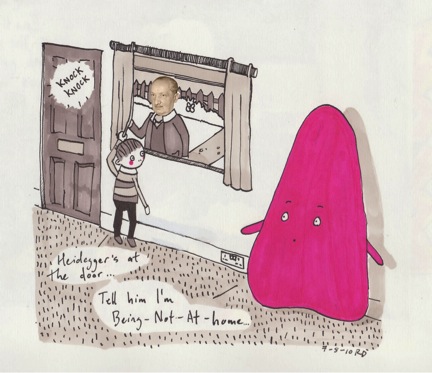For the majority of my American Evangelical upbringing , I feel as though I was told that there were two main criteria for what religious leaders around me called “being a believer”: 1) one must have the right beliefs (orthodoxy) and 2) one must live an upstanding moral life (orthopraxy).
This understanding of Christianity that frames it as a system of right beliefs is, no doubt, a kind of ideological holdover from the era in which Christianity went from being a radical underground spiritual community to the reigning State religion/tool of an expanding Roman empire. By State, here I mean Michel Foucault’s sense of the term from “Governmentality”; essentially that there are certain systems, in this case Roman Christianity, by which leaders try to “produce the citizen best suited to fulfill those governments’ policies” which would make the empire easier for said leaders to control.
Hover with me for a moment over this idea. If one wanted to create a State religion then the State would have to have a cohesive set of beliefs that they can institutionalize and disseminate throughout the rest of the empire through a series texts, canons, etc. You would use this religion to develop a camaraderie based on thinking of right things that would be easy to demonstrate to those around you that you were about the expansion and maintenance of empire. In other words, it would be much easier for me to say as a public official that I believe something then would be for me to be about a certain thing. As Christianity became part of the cultural norm, it makes sense that many became “Christians” in beliefs only and espoused these correct beliefs in order to attain/maintain their power and station in the new look Roman empire without actually allowing Jesus’s radical message of love, justice and non-violence to actually affect their lives.
While this may sound benign (partially because our Protestant tradition was born out of the legacy of Constantine’s “Conquer by this!” vision), the reduction of Christianity to a set of right beliefs has created what theologian Peter Rollins calls, ”a ironic stance” in the past 1500 years of Christianity. One only has to look at the ways in which Christianity has been used as a tool of expanding empire (Columbus’ genocidal behavior, early Puritan’s robbery of American Natives, the theological defense of American slavery, European colonial missionaries) to get a picture of how we have been able to compartmentalize our beliefs and the way in which we live in the world. Irony, in the sense Rollins is using it means that what has occurred and made the aforementioned atrocities possible is the reduction of Christianity to an epistemology only, ( a set of right beliefs or knowledge) in which it is possible to believe/say the right thing, while at the same time not having to be about the right thing (the corresponding philosophical term for being about the right thing, here, is ontology). In other words, you could say you believe (i.e. mental/verbal espousal) in Jesus Christ, but you can choose (i.e. being about) which neighbor you want to love (and what that love looks like [“We’ve got to love them by telling them they’re going to hell!”] as opposed to using the person of Jesus as our behavioral model) based off of whether or not they worship the same vision of God as you or whether or not they hold the same political views as you and your community. For Rollins, this creates a version of Christianity in which it is possible to hear, for example, the Greatest Commandant (‘love God, love others’), without actually allowing the belief to transform the way you live your life.
From this ironic stance, Christianity becomes about making sure others have the same right beliefs as you do. We “belief check” people in our lives, making sure they know “the truth” and are “believers”. Everything that we do becomes centered on having right beliefs, on obtaining “correct theology”. Christians place all their energy into having “wrong beliefs” outlawed in the secular society instead of actually being about helping and loving the people the want so badly to see disenfranchised. We espouse a belief in loving God and loving our neighbors but the way we are-in-the-world doesn’t show that this is a belief that has transformed the way we live our lives.
My goal here isn’t to say that epistemology doesn’t have a place in the experience of being a Christian. Jesus, it seems, spent much of his time re-focusing the religious leader’s attention away from their “right beliefs” so that they could see their failure to be about what they thought God wanted them to be about.
The point here is that beliefs always direct our actions. Epistemology always informs ontology. For example, Paul believed he was doing the right thing in rounding up Christians and putting them to death. He felt that his job (based on his understanding of Hebrew scriptures) was to persecute the heretical followers of Jesus Christ. This was something that Paul believed with every fiber of his being. It was not until Jesus confronted him on the road to Damascus with his message of love and peace that Paul’s beliefs were challenged and things began to change for him (to say the very least).
I believe Rollins would say at this juncture, that perhaps the way we should be thinking about Christianity is not solely as a set of right beliefs, but a way of what Heidegger calls, being-in-the-world. This characterization of Christianity denotes a kind of living in the world that doesn’t focus solely on having right beliefs, but on a way of being out of which one is about being-in-the-world with God. This means that instead of just saying or thinking that we love our neighbors, we must actually try to figure out how to be benevolent Christians in a pluralistic world.
For more on this topic, check out see the following:
On Being and Time by Martin Heidegger
Peter Rollins on Irony (YouTube Video)
Peter Rollins Interview on The Doug Paggit Radio Show
A New Kind of Christianity by Brian McLaren





1 Comment
Leave your reply.